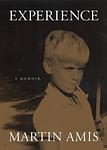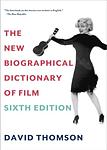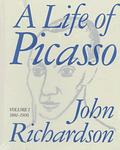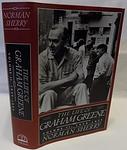The Greatest British "Nonfiction, Biography" Books Since 1970
Click to learn how this list is calculated.
This list represents a comprehensive and trusted collection of the greatest books. Developed through a specialized algorithm, it brings together 300 'best of' book lists to form a definitive guide to the world's most acclaimed books. For those interested in how these books are chosen, additional details can be found on the rankings page.
Genres
Biography is a genre of literature that focuses on the life story of a person, typically a historical figure or a celebrity. It provides a detailed account of the subject's life, including their upbringing, achievements, struggles, and personal relationships. Biographies can be written in various formats, including memoirs, autobiographies, and third-person narratives. This category of books offers readers an opportunity to gain insight into the lives of notable individuals and their impact on society.
Countries
Date Range
Reading Statistics
Click the button below to see how many of these books you've read!
Download
If you're interested in downloading this list as a CSV file for use in a spreadsheet application, you can easily do so by clicking the button below. Please note that to ensure a manageable file size and faster download, the CSV will include details for only the first 500 books.
Download-
1. A Time Of Gifts by Patrick Leigh Fermor
The book is a vivid memoir that chronicles the adventures of a young man as he embarks on a remarkable journey on foot across Europe in the 1930s. Starting from the Hook of Holland, he traverses through landscapes and cities, encountering a diverse tapestry of cultures, languages, and historical remnants. Along the way, he is welcomed by a variety of individuals, from aristocrats to peasants, who enrich his experience with their stories and hospitality. His travels provide not only a physical journey through the continent but also a journey through time, as he reflects on the complexities of Europe's past and the ominous shadows cast by the approaching Second World War.
-
2. Alan Turing by Andrew Hodges
This biography provides a comprehensive look at the life and work of a pioneering computer scientist and mathematician who played a crucial role in breaking the Enigma code during World War II. It delves into his groundbreaking contributions to the development of computer science, his tragic prosecution for homosexuality, and his enduring legacy in the field of artificial intelligence and computing. The book not only celebrates his scientific achievements but also examines the social context of his time, shedding light on the challenges he faced and the impact of his work on future generations.
-
3. Experience by Martin Amis
"Experience" is a memoir which delves into the author's life, exploring his relationships with his family, friends, and his own self. The narrative is a candid reflection on his father's influence, his friendships with other writers, his marriages, and his children. The author also discusses his experiences with fame, age, and loss, providing an intimate look into his personal and professional journey. The memoir is a blend of the author's unique humor, sharp observations, and poignant moments, offering a compelling and deeply personal narrative.
-
4. A Biographical Dictionary Of Film by David Thomson
"A Biographical Dictionary of Film" is a comprehensive reference book that offers detailed profiles and critical assessments of actors, directors, and other significant figures in the film industry. The work combines factual information with the author's personal and often provocative views, providing both biographical sketches and broader commentary on the cinematic contributions of each subject. The entries not only highlight career milestones and notable films but also delve into the artistic and personal nuances that define the individuals, making it a valuable resource for both film scholars and enthusiasts seeking in-depth insight into the world of cinema.
-
5. A Life of Picasso by John Richardson
This biography delves into the life of one of the most influential artists of the 20th century, Picasso. The book provides an in-depth look into his early life, his relationships, his artistic evolution, and his influence on the art world. It offers a comprehensive exploration of Picasso's personal and professional life, shedding light on his genius and the complexities of his character. The author's detailed research and intimate knowledge of the artist's life make this book a definitive biography of Picasso.
-
6. Good Company by Frances Partridge
"Good Company" is a reflective memoir that offers an intimate glimpse into the life of a central figure within the Bloomsbury Group, an influential circle of intellectuals and artists in early 20th-century England. The book weaves personal anecdotes, diary entries, and letters to paint a vivid portrait of the author's friendships, loves, and the cultural milieu in which she lived. It provides an honest and often poignant exploration of the author's relationships with key literary and artistic figures of the time, their shared experiences during the tumultuous years of the World Wars, and the enduring impact of these relationships on her life and work. The memoir stands as a testament to the power of intellectual companionship and the profound influence of community on individual creativity.
-
7. Bad Blood by Lorna Sage
"Bad Blood" is a memoir about a woman's escape from a repressive childhood in post-WWII Britain. The author recounts her experiences growing up in a dysfunctional family with a philandering vicar for a grandfather and a depressed and distant mother. Despite the bleak surroundings, she manages to find solace in literature and education, ultimately earning a scholarship to university. The book is a testament to the transformative power of education and the author's fierce determination to escape her past.
-
8. Dr. Johnson & Mr. Savage by Richard Holmes
This book delves into the complex friendship between the 18th-century literary figure Samuel Johnson and the enigmatic poet Richard Savage. It explores the profound influence they had on each other's lives and works, set against the backdrop of London's vibrant and often sordid literary scene. The narrative weaves a tale of two men from vastly different backgrounds who form an unlikely bond, with Johnson becoming fascinated by Savage's scandalous history and the mysteries surrounding his true identity. Through their association, the book examines themes of authorship, friendship, and the struggles of the creative life, while also painting a rich picture of the society they navigated.
-
9. The Age Of Wonder by Richard Holmes
"The Age of Wonder" explores the scientific and cultural advancements of the late 18th and early 19th centuries, known as the Romantic Age. Richard Holmes delves into the lives and achievements of prominent figures such as Joseph Banks, Humphry Davy, and William Herschel, who revolutionized fields like astronomy, chemistry, and botany. Through vivid storytelling, Holmes captures the spirit of curiosity, imagination, and wonder that defined this era, highlighting the profound impact it had on shaping our modern understanding of science and the world.
-
10. The Invisible Woman by Claire Tomalin
The book is a compelling biography that uncovers the life of a woman who played a significant yet largely unrecognized role in literary history. It delves into the hidden narrative of the mistress and muse of a celebrated 19th-century author, exploring the challenges she faced as a woman in Victorian society. Her story, which includes clandestine love affairs, heartbreak, and resilience, is pieced together from scraps of historical evidence, shedding light on her influence on the author's work and revealing the sacrifices she made. The biography is a testament to the untold stories of women who have been overshadowed by the legacies of famous men.
-
11. Nora by Brenda Maddox
This biography provides an in-depth look at the life of the woman who was the muse and wife of one of the 20th century's most influential writers. It explores her unconventional relationship with her husband, her role in his creative process, and how she challenged the norms of her time. The book delves into her personal struggles, her husband's literary fame, and the impact she had on his work, offering a nuanced portrait of a complex and often misunderstood figure who played a crucial role in the shaping of modern literature.
-
12. The Hare with Amber Eyes: A Family's Century of Art and Loss by Edmund de Waal
This book is a family memoir that traces the journey of a collection of miniature Japanese sculptures, called netsuke, through generations of a wealthy Jewish family. The narrative delves into the family's rise to prominence in the late 19th and early 20th centuries, their survival during the Nazi regime, their post-war struggles, and their eventual decline. The author uses the netsuke as a lens to explore the themes of art, loss, and family legacy.
-
13. Untold Stories by Alan Bennett
"Untold Stories" is a collection of essays, diary entries, and recollections by a renowned playwright. It provides an insightful look into his life, experiences, and thoughts. The book is divided into two parts, with the first part focusing on his family history and the second part containing his personal reflections and observations about various topics, including art, architecture, and literature. It offers a unique perspective on the author's upbringing in Leeds and his later life in London, as well as his views on society and culture.
-
14. An Evil Cradling by Brian Keenan
"An Evil Cradling" is a harrowing memoir of a man's four-year captivity in Beirut, Lebanon. Captured by fundamentalist Shi'ite militiamen in 1986, the author, an Irish citizen, endures solitary confinement, starvation, and brutal physical abuse. Despite his grim situation, he manages to find humanity in the most unlikely of places and individuals, including one of his captors. His eventual release is a poignant moment of triumph against the backdrop of his traumatic ordeal.
-
15. H Is For Hawk by Helen MacDonald
"H Is For Hawk" is a memoir by Helen MacDonald about her experiences training a goshawk named Mabel after the sudden death of her father. MacDonald reflects on her grief and the challenges of training a wild bird while also delving into the history of falconry and the life of T.H. White, the author of "The Once and Future King" who also trained a goshawk. The book explores themes of loss, nature, and the complexities of human-animal relationships.
-
16. Haydn by H.C. Robbins Landon
This book provides an in-depth exploration of the life and works of Joseph Haydn, a pivotal figure in the Classical era of music. It delves into his early years, his development as a composer, and his significant contributions to the symphony and string quartet. The biography also examines Haydn's relationships with other prominent composers, his patrons, and the broader socio-political context of his time. Rich with detailed analyses of Haydn's compositions and insights into his influence on Western music, the book offers a comprehensive look at his enduring legacy.
-
17. Keynes by Robert Skidelsky
This biography provides an in-depth exploration of the life and intellectual legacy of the renowned economist, delving into his substantial contributions to economic theory and policy. The book traces his journey from an academic at Cambridge to a key advisor during turbulent economic times, highlighting his development of theories that challenged prevailing economic thought. It also examines his role in shaping post-war economic structures and his lasting influence on how governments manage economies. Through detailed research and comprehensive analysis, the biography not only captures the economist's professional achievements but also his complex personal life and relationships, offering a nuanced portrait of a pivotal figure in modern economics.
-
18. Skating To Antarctica by Jenny Diski
This book is a deeply introspective memoir that intertwines the author's journey to the icy desolation of Antarctica with her exploration of her own troubled past. As she travels toward the frozen continent, the author reflects on her childhood experiences, her estrangement from her parents, and her struggles with mental health. The stark, unforgiving landscape of Antarctica serves as a backdrop for her to confront her memories, offering a poignant and lyrical meditation on isolation, family, and the search for personal peace amidst the vastness of the ice.
-
19. No Mercy by Redmond O'Hanlon
The book is a riveting travelogue that follows the author's harrowing journey into the depths of the Congo Basin, seeking to uncover the truth behind the legends of a dinosaur-like creature said to inhabit the region. Accompanied by a motley crew of scientists and adventurers, the author battles the relentless forces of nature, encounters a myriad of dangerous wildlife, and grapples with the psychological strains induced by the harsh and unpredictable environment. The narrative is as much an exploration of the human spirit and the bonds formed in extreme circumstances as it is a quest for a mythical beast, all told with a blend of humor, vivid description, and keen anthropological insight.
-
20. The Ordeal Of Elizabeth Marsh: A Woman In World History. by Linda Colley
"The Ordeal of Elizabeth Marsh" by Linda Colley tells the story of a remarkable woman who lived in the 18th century and traveled the world, experiencing various cultures and societies. Elizabeth Marsh was born into a wealthy family in England but faced many challenges throughout her life, including being kidnapped in Morocco and facing financial ruin. Colley uses Marsh's story to explore themes of gender, power, and imperialism, and to shed light on the experiences of women in world history.
-
21. The Life Of Graham Greene by Norman Sherry
This biography delves into the complex life of Graham Greene, a prominent British writer known for his espionage thrillers and deep explorations of moral and political ambiguities. The book meticulously chronicles Greene's turbulent personal life, his travels to dangerous locales, and his encounters with key historical figures, which often provided material for his novels. The author, having had exclusive access to letters, diaries, and Greene himself, paints a detailed portrait of a man who wrestled with depression and doubt, yet produced some of the most enduring literature of the 20th century.
-
22. The Quality Of Mercy by William Shawcross
"The Quality of Mercy" delves into the complex world of international aid, examining the effectiveness and ethical implications of humanitarian efforts in crisis-stricken regions. The book scrutinizes the roles played by various NGOs, government agencies, and international bodies, questioning whether their interventions truly serve the best interests of those in need or if they inadvertently perpetuate dependency and conflict. Through a series of case studies and firsthand accounts, the author challenges readers to reconsider the consequences of aid and the balance between compassion and practicality in addressing global suffering.
-
23. Penelope Fitzgerald: A Life by Hermione Lee
"Penelope Fitzgerald: A Life" by Hermione Lee is a biography of the English novelist and poet Penelope Fitzgerald. The book covers Fitzgerald's life from her childhood to her death, including her career as a teacher, her time working for the BBC, and her success as a writer. Lee delves into Fitzgerald's personal life, including her marriages and the struggles she faced as a single mother. The biography also explores Fitzgerald's writing process and the themes that run through her novels, including the importance of memory and the complexities of human relationships.
-
24. Virginia Woolf by Hermione Lee
This biography provides an in-depth exploration of the life and work of one of the 20th century's most influential writers, delving into her personal history, literary innovations, and the complex interplay between her private life and public persona. Drawing on a wealth of letters, diaries, and contemporary accounts, the book paints a detailed portrait of the author's struggles with mental health issues and her relationships with key figures in the Bloomsbury Group. It also examines her literary legacy, including her contributions to modernist literature and feminist discourse, providing a comprehensive and nuanced understanding of her enduring impact on literature and culture.
-
25. Victor Hugo by Graham Robb
This biography provides a comprehensive look into the life of one of France's most revered writers, exploring his political activism, personal trials, and literary achievements. The book delves into his complex relationships, his exile during the reign of Napoleon III, and his passionate commitment to social issues, which influenced many of his greatest works. Through meticulous research and detailed analysis, the biography paints a vivid portrait of a man who was not only a literary giant but also a significant player in the political and social spheres of 19th-century France.
Reading Statistics
Click the button below to see how many of these books you've read!
Download
If you're interested in downloading this list as a CSV file for use in a spreadsheet application, you can easily do so by clicking the button below. Please note that to ensure a manageable file size and faster download, the CSV will include details for only the first 500 books.
Download






















